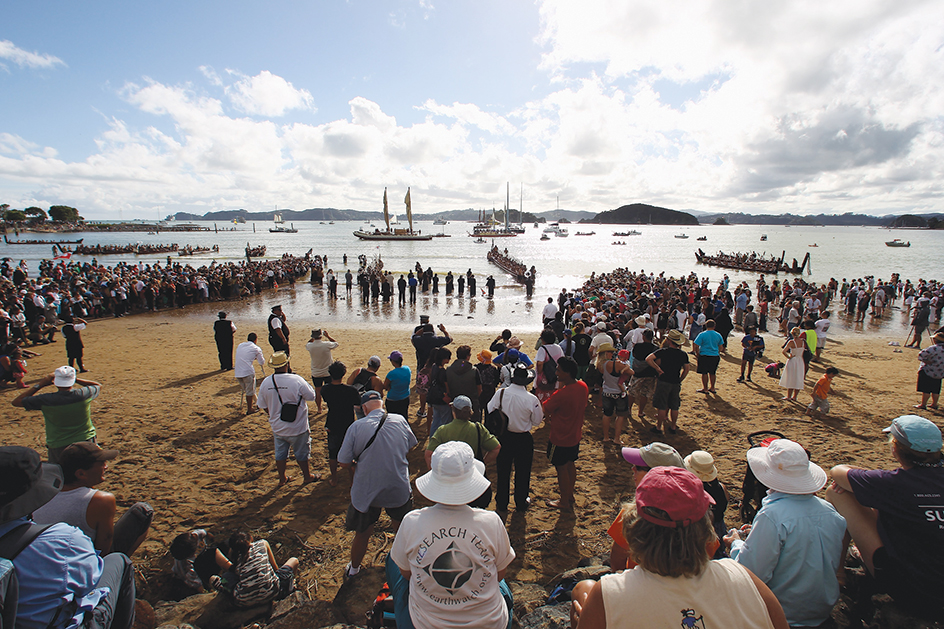Waitangi Day is a national holiday celebrated in New Zealand every year on February 6. It commemorates the 1840 signing of the Treaty of Waitangi, an agreement between New Zealand’s Māori people and representatives of the British government. The treaty was the foundation for establishing New Zealand as a British colony. Although New Zealand became fully independent in 1947, many New Zealanders regard the Treaty of Waitangi as the founding document of their nation. See Waitangi, Treaty of .

The Treaty of Waitangi was initially signed at a house overlooking the Bay of Islands in the northern part of New Zealand’s North Island. John Busby, a representative of the British government, lived there at the time. In 1932, New Zealand’s governor general, Lord Bledisloe, purchased the house as a gift to New Zealand. In 1934, New Zealand’s government honored the treaty and Lord Bledisloe’s gift with the first Waitangi Day celebration. The event took place at the historic home, now renamed Treaty House.
The celebration of Waitangi Day developed over the years. The Waitangi Day Act of 1960 stated that February 6 would be a national day of thanksgiving in honor of the treaty. The New Zealand Day Act of 1973 renamed the day and declared it an official public holiday. The Waitangi Day Act of 1976 restored the original name.
Today, celebrations of Waitangi Day often emphasize the coming together of the many different peoples of New Zealand. The day has also been a focus for protests demanding greater recognition of Māori rights.
